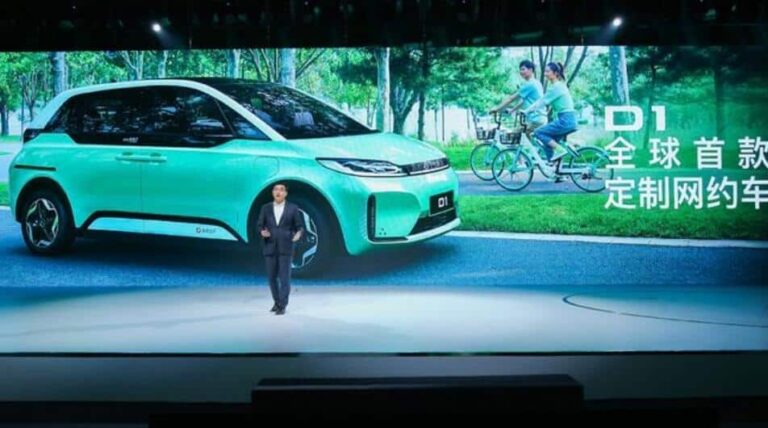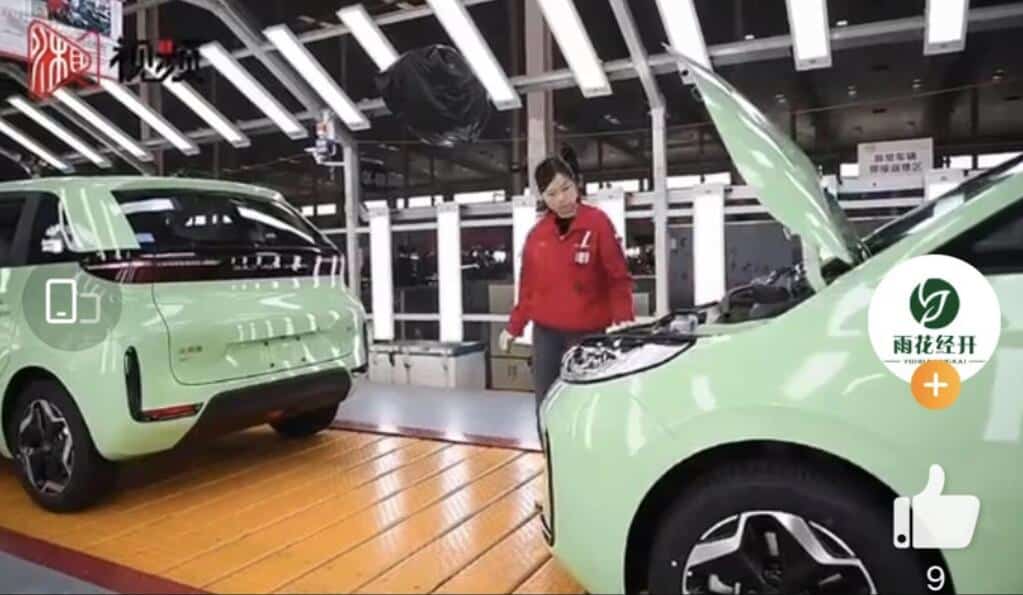The customized vehicles for ride-hailing launched by Chinese automaker BYD and Didi, the Chinese equivalent of Uber, are rolling off the production line at a rate of 60 seconds each, with a daily average of nearly 400 units.
The vehicles are being produced at BYD's plant in Nanjing's Yuhuatai district, the local government announced today.
The vehicle, which is open for sale only to registered ride-hailing drivers on Didi, was released on November 16, 2020.
Unlike the platform's traditional ride-hailing cabs, the D1's biggest feature is that passengers can adjust the car's air conditioning temperature and air volume through the Didi app before getting on board.
When passengers hail D1, the platform will dispatch a rainbow pattern to match the vehicle, making it easier for passengers to find the car.
In addition, D1 adopts BYD’s blade battery with a permanent magnet synchronous motor, with a maximum power of 100kW, and the NEDC range is about 418km.
On December 25, 2020, the D1 was officially put into production and the first batch of new vehicles were delivered at the BYD based in Changsha.
The first batch of D1 models will be put into operation first in Changsha, with an expected annual output of more than 100,000 vehicles and an output value of over RMB 10 billion ($155 billion)
According to Didi's plan, Didi will release D2, the replacement model of D1, in 2025, by which time the volume of D2 will be expanded to 1 million units and equipped with a self-driving system.
By 2030, the DX will no longer have a cockpit and will be fully self-driving.

